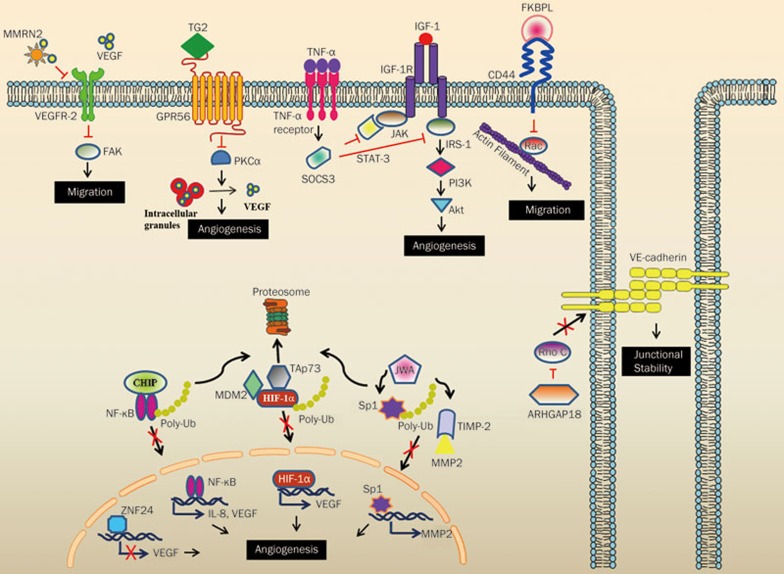Figure 2.
Mechanism of action of endogenous angiogenesis inhibitors. Angiogenesis inhibitors affect the fundamental processes leading to angiogenesis such as proliferation, survival, adhesion, migration and junctional stability. The secreted angiogenesis inhibitors such as MMRN2 and FKBPL act on specific cell surface receptors modulating their pro-angiogenic function. In the case of membrane proteins such as GPR56, binding to its specific ligand results in the activation of a signaling cascade leading to angiogenic inhibition. The cytoplasmic angiogenesis inhibitors such as CHIP, TAp73 and JWA function via a common mechanism: by promoting proteosomal degradation of their cellular targets, thereby preventing their nuclear translocation and subsequent action. ARHGAP18 achieves angiogenic inhibition via influencing EC junctional stability. Finally, ZNF24 acts via transcriptional repression of the angiogenic stimulator VEGF.

